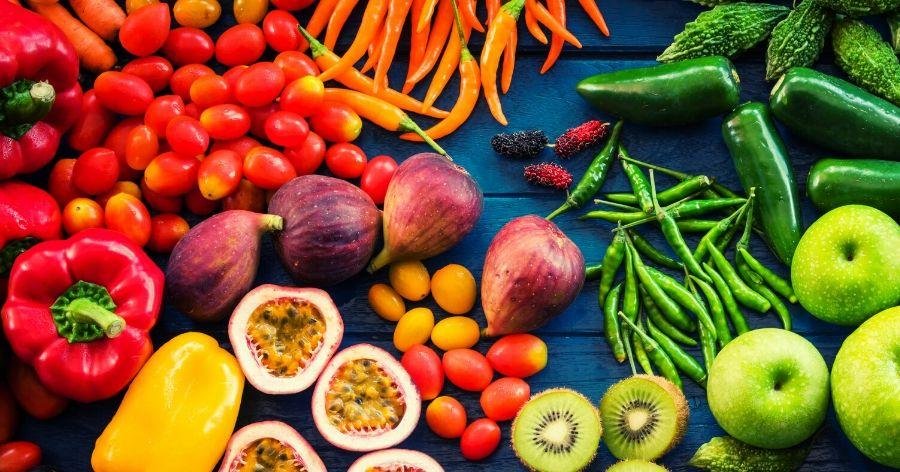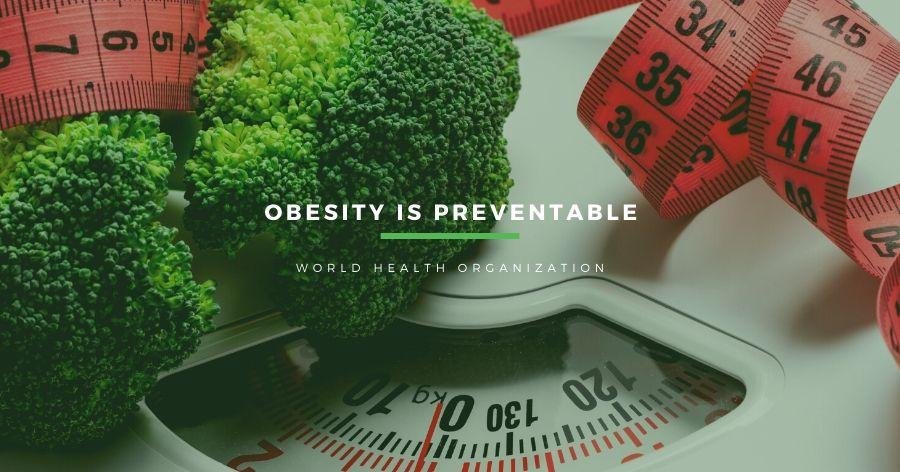Weight Loss on a Plant-Based Diet

Many people are trying out the Whole Food Plant Based diet for weight loss purposes. Luckily several research studies are showing that weight loss is achievable on a WFPB diet. In these studies, the effects of the dietary change already show within a matter of days!
The common pitfall of weight loss programs is that their effects are usually short-lived. People tend to go back to their old diets.
But when you achieve weight loss on a plant-based diet and then sustain the lifestyle, the results appear to be lasting. Want to know more about sustainable weight loss on a Whole Food Plant Based diet? Continue reading and find out more about these studies and how to get started.
Learn how to live Whole Food Plant-Based
Are you ready to to make the dietary change?
Carrying excess body fat is the number-one risk factor for type 2 diabetes; up to 90 percent of those who develop the disease are overweight.
— Dr Greger (How Not To Die, page 106)
The World Health Organization’s obesity and overweight fact sheet include the following statistics:
- Since 1975, obesity worldwide has nearly tripled
- 650 million obese people in the world (2016)
- 1.9 billion overweight adults aged 18 years or older (2016)
- Over 340 million children and adolescents aged 5-19 are overweight or obese (2016
- Over 40 million children aged 0-5 are obese or overweight (2018)
The list contains more items but closes off with the hopeful message:

The fact sheet also mentions the leading causes of obesity and overweight:
- Increased intake of foods containing large amounts of fat and sugar
- Increased physical inactivity
So, with that information, these are the 3 core things individuals can do to reduce overweight and obesity:
-limit energy intake from total fats and sugars;
-increase consumption of fruit and vegetables, as well as legumes, whole grains and nuts; and
-engage in regular physical activity (60 minutes a day for children and 150 minutes spread through the week for adults).
— World Health Organization
The food industry as a whole also has a big responsibility in the battle against the obesity epidemic. This starts with making healthy and nutritious food products at affordable pricing. The next step is to promote and encourage the public to make healthy food choices.
But, the most important thing is to take responsibility for your actions, including which foods go into your body. The WHO recommends us to increase the consumption of fruits, vegetables, beans, whole grains, and nuts. So, once we decide to follow the Whole Food Plant Based diet for weight loss: How much average weight loss can we expect and within which timeframe?
Physician’s Committee Study
In one study conducted by the Physician’s Committee, 64 women followed a plant-based diet for 2 years. The diet in the study:
- A plant-based diet
- without any animal products
- and keeping oils to a minimum
The 64 participants in the study were either moderately or severely overweight. While not eating any animal products and only consuming a minimum amount of oil, they lost about a pound per week. In addition, they maintained their weight after 2 years.
The study suggests that fiber plays a big part in weight loss on a plant-based diet. Whole based foods have a lot of fiber, but without adding extra calories. This means you’ll feel full without bringing a lot of fat into your body. The key is to maximize the intake of plant foods in unprocessed form, including whole grains, beans, fruits, and vegetables.
Dr McDougall’s Study

CHIP Study: Achieving Sustainable Weight Loss on a Plant-Based Diet
For longer studies, the Complete Health Improvement Program (CHIP) offers some incredible insights. Worldwide, an estimated 60,000 people participated in the program.
The CHIP intervention has shown benefits for the management of chronic diseases and has been described by the American College of Lifestyle Medicine as “achieving some of the most impressive clinical outcomes published in the literature.”
— The Complete Health Improvement Program
CHIP encourages people to move towards a Whole Food Plant Based diet to treat chronic disease. The various journals report blood pressure drops, cholesterol drops, and weight loss. The more severe a person’s condition, the more dramatic the results.
Participants at greatest risk experienced the greatest changes
— The Complete Health Improvement Program
What is CHIP’s average weight loss on a plant-based diet? Four weeks into the program, the average weight loss is about 6 pounds (2,7kg)! Remarkable results to say the least. You may be wondering: What about putting the weight back on after a while? The Whole Food Plant Based path appears to offer a sustainable solution.
Researchers looked at how the participants were doing 18 months after the completion of the CHIP intervention. They found that most participants kept away or dramatically reduced their intake of animal products. Indeed, the conclusion is that sustainable weight loss is achievable on a WFPB diet:
The sustained reduction in body weight is especially noteworthy given that most people regain all weight lost within 5 years of participating in a 20- to 30-week weight loss intervention.
— The Complete Health Improvement Program
Let’s Get Started!
Convincing, right? These are just a handful of studies showing the beneficial effect of plant-based diets on overweight and obese people. There are many more studies showing weight loss on a plant-based diet is achievable.
Are you ready to give it a try? Let’s take a look at some more components of the Whole Food Plant Based diet, including a list of foods to eat and avoid.
No Need For Counting Calories
The advantage of a whole-food, plant-based approach to weight loss is that there may be no need for portion control, skipping meals, or counting calories, because most plant foods are naturally nutrient-dense and low in calories.
— Dr Greger (How Not To Die, page 109)
When people talk about how to achieve weight loss, the response is often: Eat less. Drastically limiting food intake (and thus also calorie intake) often leads to short-term weight loss successes.
One of the problems with this approach is that it is not sustainable. When you eventually return to your old ways of eating, the weight comes back on. What if we said it is possible to achieve sustained weight loss on a plant-based diet?
The key is in limiting calorie-dense foods, including all animal products and vegetable oils. Whole plant foods such as beans, potatoes, rice, vegetables, and fruits have a low-calorie density. At the same time, they fill your tummy nicely!
Dietary recommendations from Whole Food Plant Based experts include the suggestion to stop counting calories. It is simply not necessary. Eat as much whole plant foods as you want!

Vegan VS Plant-Based: Stay Away From Oils and Junk Food
There is an important difference between a vegan diet and a Whole Food Plant Based diet. A vegan diet can be just as healthy as an animal-based diet. You may consume french fries, processed bread, sugar, and cola, yet call yourself a vegan. After all, these are items that don’t contain animal products.
The main idea of vegans is to live a life in which you don’t contribute to animal cruelty (as much as possible). That’s a great ideal and something to admire. However, there is a side note. While vegans may take great care of animals, they may not be taking the best care of their own bodies.
Thus there is also a different, more healthy stream: The Whole Food Plant Based diet. This diet doesn’t just emphasize avoiding all animal products. Its main focus is to consume whole foods and to stay away from processed foods such as vegetable oils, refined bread, sugar-laden cookies, and all other forms of processed foods.
It is important to understand this difference between veganism and the WFPB diet. Achieving weight loss will be much easier when eating whole plant foods.
Don’t Forget About Doing Exercise!
It’s not without reason that the World Health Organization stresses the importance of regular exercise. Physical inactivity is one of the two primary causes of obesity. The combination of a healthy diet and exercise can quickly lead you to lose your first pounds.

The WHO recommends adults do at least 150 minutes of exercises spread over a week, and 60 minutes of exercise per day for children. Dr Greger takes it a step further. In his Daily Dozen app he suggests either of the following daily:
- 90 minutes moderate workout
- 40 minutes vigorous workout
I guess nobody can disagree that the more you exercise, the better.
4 Tips to Get Inspired to Achieve Weight Loss on a Plant-Based Diet
1. Focus on the Positives
When people start out trying a Whole Food Plant Based diet, there’s often a feeling of deprivation. The focus is on what they cannot eat anymore. This is understandable since changing habits is one of the hardest things to do.
That’s why my first tip is to focus on the positive aspects of the Whole Food Plant Based lifestyle. We’ve already mentioned the positive impact on our physical wellbeing, but there’s more.
Research shows that plant-based eating is associated with an elevated mood:
- Reduce depression
- Fewer anxiety problems
- Less psychological distress
- Increased mood
- Increased mental health
2. Keep it Simple
You don’t need to cook three fresh meals a day. While it’s good to consume a variety of whole foods, it’s a lot easier to make the transition if you start simple. Go through these recipes and pick 4 or 5 of your favorites. Make them over and over again.
3. Netflix for Inspiration
Netflix has some great plant-based inspired movies and documentaries. I recommend Forks Over Knives and The Game Changers in particular. These are sure to inspire you and your family. I watch these movies over and over again.
4. Supportive Environment
Transitioning to a plant-based diet can be a bit lonesome, as there are often not many people around us who understand or support our decision. They may see it as something extreme.
Find yourself a supportive environment. For example, join some of the Whole Food Plant Based support groups. As part of our coaching program, we also have a Facebook support group with weekly challenges, tips, and inspiration.
Conclusion
There is clear evidence suggesting that weight loss on a plant-based diet is achievable. Several studies show that beneficial effects on weight are visible within just a few days. The average weight loss in those who strictly follow a Whole Food Plant Based diet is about 2 pounds (almost 1 kg) per week.
Also, people appear to maintain their weight loss when they stick with the WFPB diet. The accumulated scientific evidence shows multiple benefits of following this lifestyle for people who are overweight or obese. Are you ready to learn how to start a WFPB diet?
Book Your Coaching Session
We offer plant-based coaching sessions for those who want to transition to a Whole Food Plant Based lifestyle, or to those who have already started but are facing challenges. The coaching sessions are aimed at offering motivational and practical advice such as cooking, shopping, family challenges, going out for dinner, overcoming psychological challenges, changing habits, and more. Note: No medical advice is given in the consults.

GET STARTED!
When you transition to a Whole Food Plant Based lifestyle, all sorts of challenges appear on the path. If you are serious about this, you may need to give up some of your favorite foods and flavors and try to replace them for new ones. You may feel limited at first, but you'll be surprised by the variety of new foods and flavors. To help you get started, we've put together a list of 5 simple food tips.
